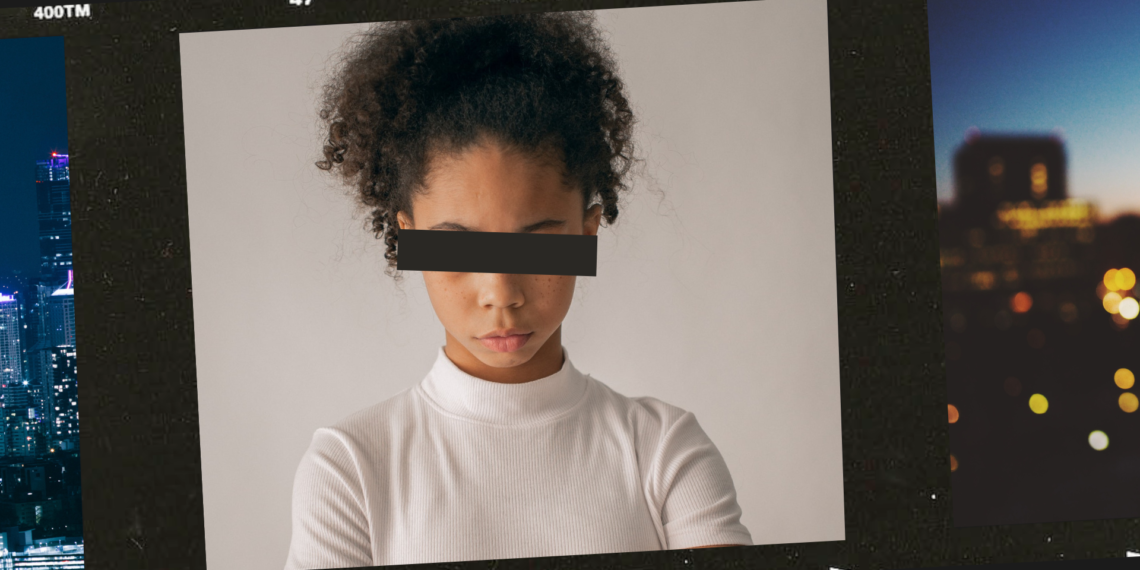I made a creative piece for a final project during my time at YWAM LA on the Anti-trafficking track. You can watch my spoken word here.
During the school, I didn’t realise that the stereotype I had believed in my head about prostitution was primarily based around the glamourized picture of Julia Roberts in Pretty Woman. After researching this topic more in-depth and actually encountering women on the streets, I realised that that simply wasn’t the case. In the area we were doing ministry, it’s no coincidence that all of the women that we’ve encountered on outreach have been women of colour and I wanted to create a piece that reflected my findings and shine a light on the issue.

Race in Human Trafficking
The story behind this spoken word is all based on race. While doing research there was a lot to cover. So many resources, articles, news clippings etc. that told the story of race playing a huge factor in the sex industry.
Normally I would think of white women as the stereotypical face of prostituion, at least that’s what I believed beforehand. Believing the glamourized picture of Julia Roberts in Pretty Woman. After researching this topic I realised that that simply wasn’t the case.
It’s no coincidence that all of the women that we encountered on outreach have been women of colour.
According to Rights4Girls.org
“In a two-year review of all suspected human trafficking incidents across the US, 94% of sex trafficking victims were female, 40% were Black and 24% were Latinx.”
Rights4Girls.org
This means that women of colour made up to more than half of human trafficking incidents in just those two years.

The following were themes connected to the life circumstances of women of colour in regard to sex trafficking. People of colour are more likely to experience:
- a history of sexual and/or physical abuse,
- community or family instability and dislocation
- child welfare involvement especially out-of-home foster care placement
- life as a runaway or homeless youth
- disconnection from the education system and being off-track for achievement
- poverty
Traffickers, according to an NPR article “prey on individuals who are poor, vulnerable, living in an unsafe or unstable situation, or are in search of a better life.”
A few other themes I found when researching was this idea of:
- Adultification and sexualization of young black girls and that they were viewed as ‘less innocent’
Studies I found on CBC inc’s website showed that compared to white girls, black girls were viewed as:
- Less nurturing
- Less protected
- Less supported
- Less comforted
- More independent
- Know more about adult topics
- Know more about sex
Due to these attributed characteristics, black girls have more of a chance at being criminalized rather than seen as victims.
In Los Angeles County, the African-American victim rate reaches 92%. I mention this in the poem. Also if you listened carefully when Precious starts speaking, her account is entirely made up of survivor’s stories that I found from Grant Makers for Children of Colour and Love 146.
Grant Makers for Children of Colour also mention that the traffickers that are marketing and selling their victims sell to a largely white, affluent base, educated and often married.
The four influences of sex trafficking according to research could be boiled down like this:
- white privilege/white access
- racism
- gender identity/gender objectification
- poverty
I also read a lot of articles that went into the history of slavery and drew parallels between that and modern-day which I won’t go too into detail now but I will highlight the way Love 146 describes it: “The racialized sexual exploitation of people of colour that developed during slavery and colonization impacts cultural expectations and beliefs about the availability and use of children of colour for commercial sex today.”
I also noticed that there was a lot of stereotyping. For example, research that West Coast CCC did state that “American society embraces stereotype that good girls do not engage in premarital sex. Conversely, kids involved in prostitution are stereotyped as bad girls who have turned to prostitution as an act of rebellion against mainstream moral values.” they are depicted as “dysfunctional misfits whose inherently sexually promiscuous nature undermines the moral standards of the mainstream society.”
I depict Precious as a runaway this is because the most vulnerable persons to be trafficked are:
- undocumented migrants
- runaways
- at-risk youth
- oppressed or marginalized groups
- those impacted by poverty
I love CBC’s call to help society recognize injustice for what it is:
“By not addressing the systematic inequalities which persist in the combined effort of the education and criminal justice system, Black girls have a higher likelihood of being pushed out of school. Therefore, Black girls have a higher chance of being sex trafficked and criminalized by law enforcement.”
Finally, the last section “The Loving Father – talking” I took a majority of it from scripture. Scripture that God highlighted to me while praying beforehand when we went on our last 3am outreach in Los Angeles. The verse being:
“I have cared for you since you were born.
I will be your God throughout your lifetime- until your hair is white with age.
I made you, and I will care for you. I will carry you along and save you.
‘To whom will you compare me? Who is my equal?'”
Isaiah 46:3-5
The rest of it is a snippet of a prayer that I wrote on the way to outreach just before leading out. A prayer that I actually managed to pray with one of the women we encountered.
Like majority of the aspects of learning more about the sex industry, it can be overwhelming to hear such big numbers and factors that all play a part in it. A great first step is to be willing to learn and willingness to unlearn stereotypes and concepts that we may have subconsciously learned growing up. Another step is to also have hope. God is not silent on these matters and our prayers don’t hit walls, they penetrate the heart of a God that is a God of justice.
God is not silent on these matters and our prayers don’t hit walls, they penetrate the heart of a God that is a God of justice.
RESOURCES:
1) https://rights4girls.org/wp-content/u…
2) https://www.dressember.org/blog/racea…
3) https://humantraffickingsearch.org/hu…
4) https://www.cbcfinc.org/wp-content/up…
5) https://grantmakersforgirlsofcolor.or…
6) http://www.westcoastcc.org/wp-content…
7) https://love146.org/lets-talk-about-r…
8) https://www.du.edu/korbel/hrhw/resear…
9) https://bjs.ojp.gov/content/pub/pdf/c…
10) https://thevoiceofblackcincinnati.com…
11) https://www.justice.gov/humantraffick…
12) https://vc.bridgew.edu/cgi/viewconten…





